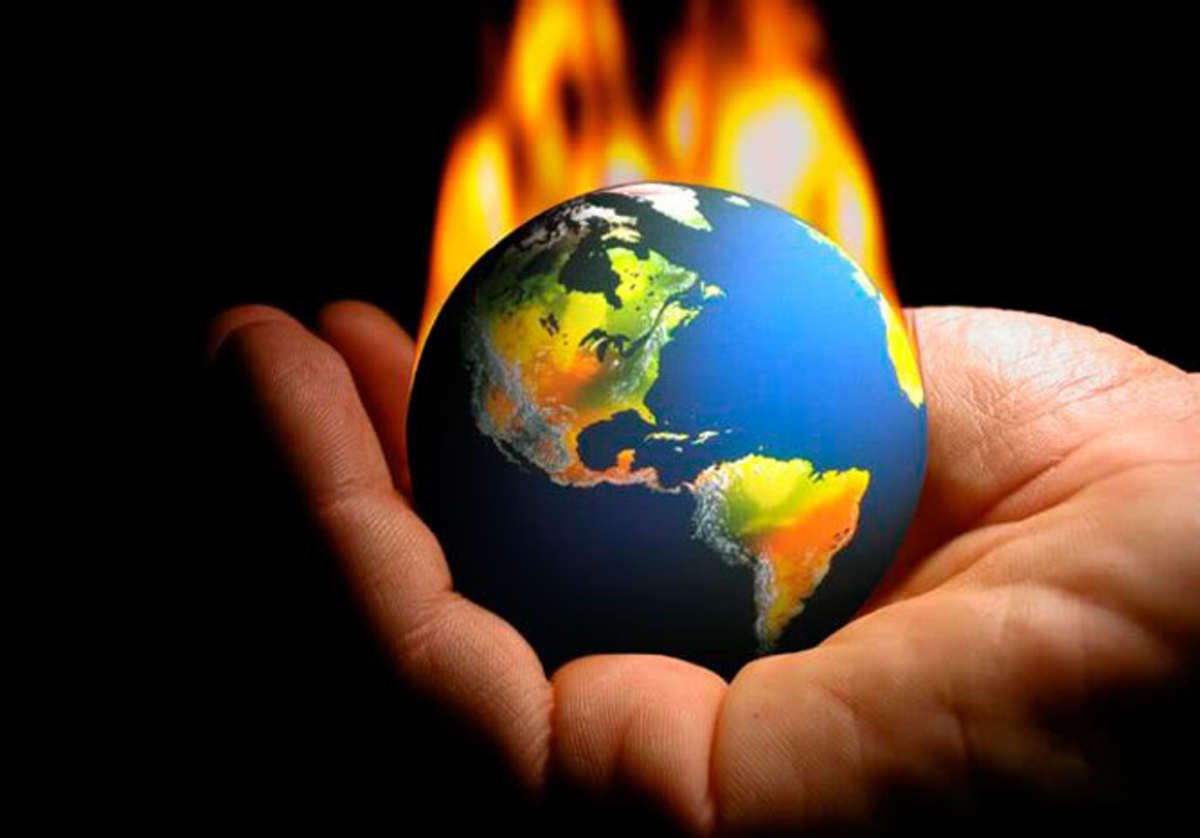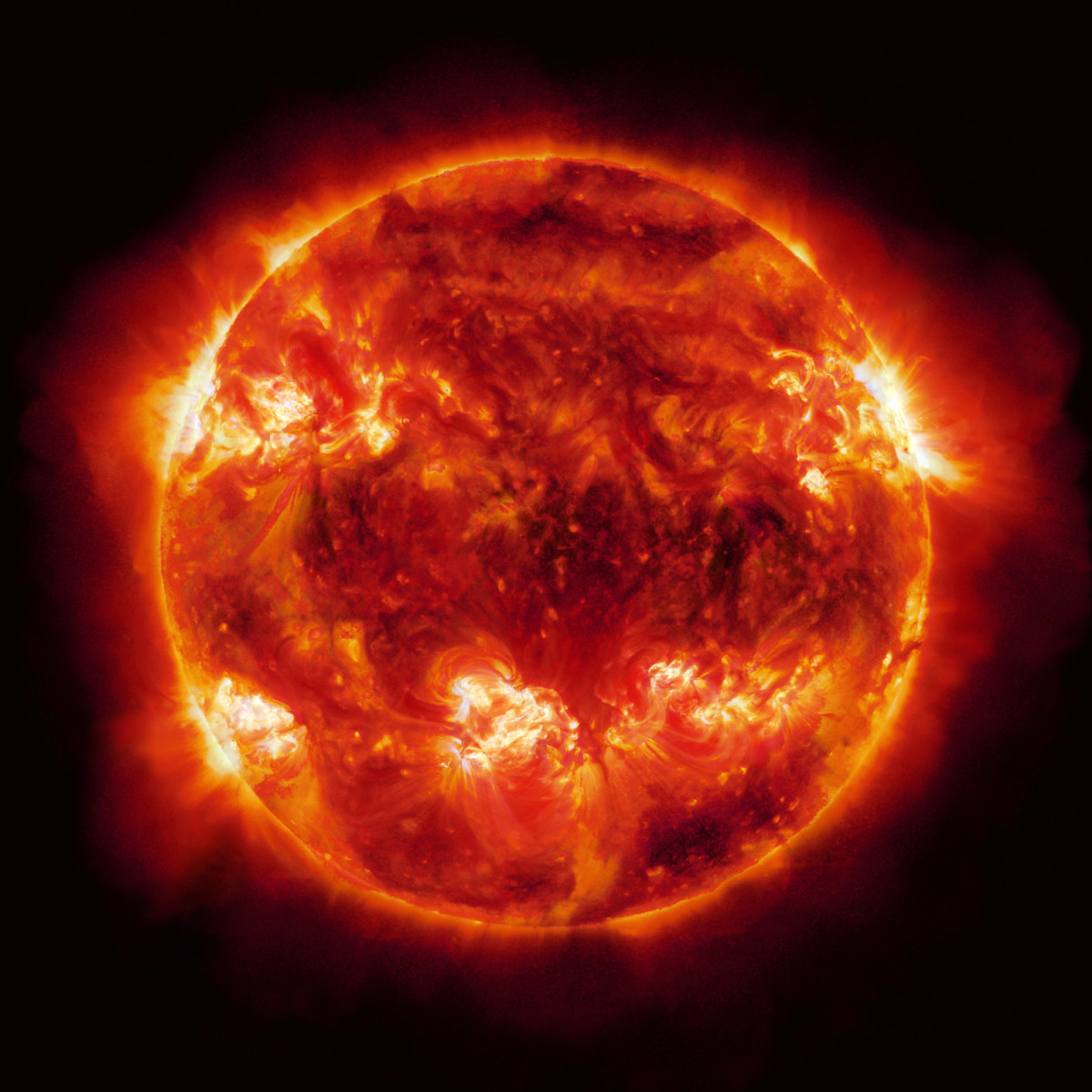Why human CO2 cannot cause global warming
Do You believe in Human-made or natural climate change
The idea that human carbon dioxide emmission causes global warming in absurd and highly inflated (to say the least). I have researched both what the human-made climate warming proponents say, and what the human made skeptics say. Below I will do some small calculations to illustrate the effects of human CO2 (Carbon Dioxide) emmissions. Seeing the data, and research (most majority of which is not included in this article), I myself more lenient towards, a natural global warming (the past 9 years of global median temperature decrease might be temporary, I don't know). Also note that those who say that humans made global warming don't talk about solar flames and the number of solar spots (solar activity), pretending as if it was constant, although in the past few hundred years or so its been more and more active (about a hundred earths would fit in the sun, thats how big it is).
The proportin of CO2 in the atmosphere in respect to all elements varies based on the sources of proponents and skeptics, but the consesus is that it is 0.02-0.04 per cent of the atmosphere. There are primarily three ways that (according to my research) produce most of the CO2 besides humans. The below calculation is not scientifically correct; its sole purpose is to demonstrate proportions.
- The first producer of CO2 are the oceans and seas. Before I go into the calculation, let me, very briefly sum up the human civilisation's history. Human civilization started about 8 000-10 000 years ago, when humans first started to produce their on crops (farming). Before this, people only hunted and gathered food what they found in the wild. The beginning of farming also, inevitably, bought along settling down, making the nomadic lifestyle less and less dominant. This is also the period when the first villages and cities formed, first in the middle east, and some time later in parts of China. These are the two areas where the first great civilizations formed. Back to the oceans and seas (which cover about 70 per cent of the surface of the earth (so people are crouded on 30 per cent of the world)), oceans and seas each year produce many times more CO2 than all the human CO2 emmissions during ALL of human civilization ever produced combined. Now lets use the figure of the proponents of human-made CO2; the 0.04 per cent carbon dioxide in the atmosphere. To get the total CO2 that people put in the atmosphere during ALL of its presence on earth, we have to divided the total CO2 proportion with the total ocean + sea CO2 production. Lets just use an EXTREMELY small dividend and just half it: 0.04/2=0.02. So without oceans AND seas the total output of humans is 0.02 per cent of the atmosphere. Remember only halving it is EXTREMELY low. So, pretending that only oceans, seas and humans ever produced carbon dioxide, the total human output in the last 10 000 years is no more than 0.02 per cent. Lets include the second largest CO2 producer.
- The second largest producer of CO2 are volcanoes. Remember, that volcanoes have been long present and active on earth long before oceans existed. Each year volcanoes produce more CO2 than all human emissions combined. So, lets just halve again the result of point 1.: 0.02 per cent. 0.01/2=0.01. So the total human CO2 emissions in the last 10 000 years is 0.01 per cent of the atmosphere. Lets move onto the third largest CO2 producers.
- The third largest CO2 emmitters are animals. Animals produce more CO2 than ALL human annual production combined (here again, it also includes industrial emmissions). Note, that estimates say that humans know only about half of all land SPECIES, the other half lives in the rainforests of the Americas, Africa, and South-East Asia. Also scientist say that we know only about 1 per cent of the oceans, and we barely scratching the surface; most ocean creatures probably live in the deep oceans, of which we virtually know nothing of. There are currently about 1.8 million named species. Now to get an idea of how many known animals there are, lets just use a VERY low estimate of all the known animals: lets sat that there are 100 000 animals for each species: 100 000*1.8mill= 180 billion animals. This includes large population animals like insects species, and large animals like whales, that probably produce more CO2 than a small village.
Back to our calculations, again, lets halve the result of point 2: 0.01/2=0.005. So, after some EXTREMELY low estimates of the contribution by non-humans to the level of carbon dioxide in the atmosphere, PEOPLE IN THE LAST 10 000 YEARS PRODUCED LESS THEN 0.005 PER CENT OF ALL THE CARBON DIOXIDE.
Now, still, lets move a step further. Human made global warming skeptics say that a doubling in CO2 causes and average increase in temperature of 0.5-0.8 Celsius. proponents of human made global warming say it is 1.6-5 Celsius. Note, that the 5 celsius is an average, at some places, it is above 10 degrees, at other areas it is less then 2 or 3 degrees. Lets use the 5 celsius increase. Lets say that in the next 100 years we double our CO2 temperature. Lets use the result of point 3: 0.005 per cent. 0.005*5=0.025. This means that even if we double our production in the next 100 years, the rise in temperature is LESS then 1 Celsius.









